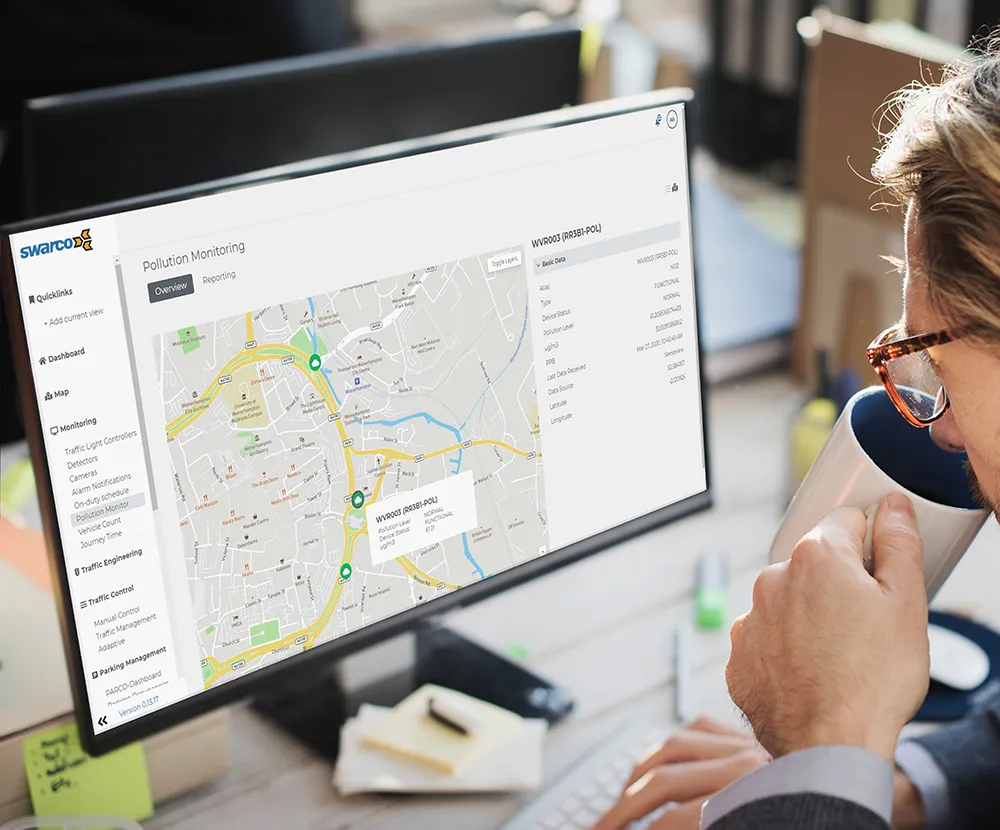
MyCity has the functionality of a traditional traffic management system, such as traffic signal control, car park guidance and variable message sign (VMS) management and journey time monitoring, the company says.
It also allows the plug-in of new features such as electric vehicle charging management, micromobility, floating car data and air quality management.
The web-based modular set-up means the system can be tailored to suit the specific needs of individual towns or cities, according to Swarco.
It can also be deployed as a service model where functionalities and features can be easily added any time to improve traffic flow and safety.
MyCity brings together all of Swarco's software solutions, including Zephyr for controlling VMS and other signage to guide drivers, whether it be to the nearest parking space or by providing valuable traffic updates and information.
“Traditionally Swarco has delivered domain-specific solutions within the field of urban traffic, highways, parking and public transport,” said Carl Dyer, chief technology officer at Swarco UK. “MyCity now brings this know-how together in a holistic platform approach.”
MyCity is available as an on-premise solution or as a cloud-based solution operated by Swarco.









